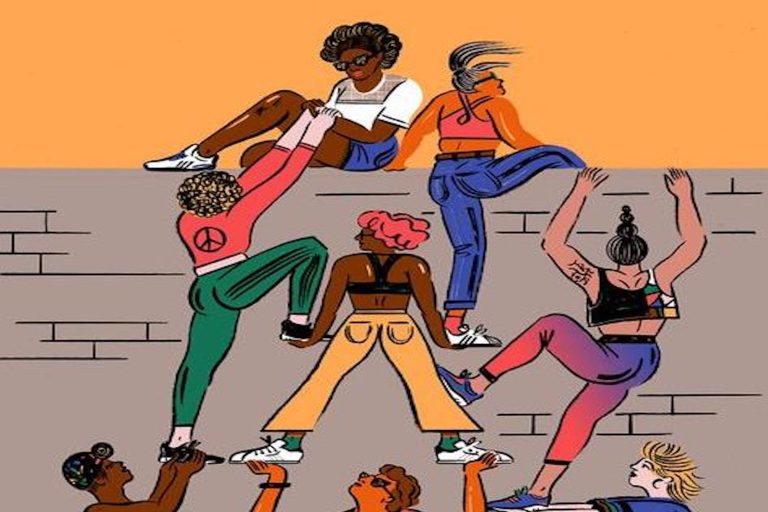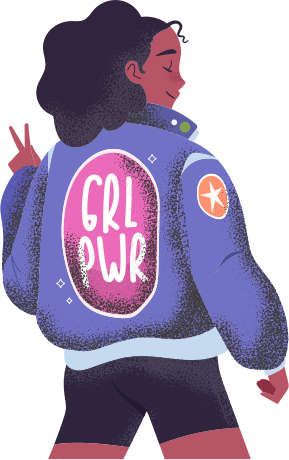Periods.
A word which sends shivers down the spines of millions of women.
Women deal with a lot when it comes to periods, from low moods, stained jeans and horrible back pains.
Through my teenage years, I dealt with irregular, painful periods, and with this came depression, weight loss and anxiety. From 15 to 17, I had no periods. I assumed this was normal, and when I eventually had a period, I was in immense pain. I could not leave my bed. I could not even walk to the bathroom, and to top it off, I was crying all the time!
I thought:
“Am I being dramatic?”
“Is this normal?”
“Is this going to last forever?”
However, at 18, I had enough, and I gathered enough courage to call the doctors to plead for some help. Accordingly, my GP decided to put me on the pill, and as a young impressionable woman, I thought this tiny, white pill would save me.
It did not.
I became even more anxious and moody, and I am very sure my siblings will agree with this. I could feel there was something wrong with me, but my doctors disagreed.
I would have tests after tests. If I had a pound for every time I have had a blood test during my teenage years, I could probably pay off my student loan. It is no surprise, many women of colour are underdiagnosed with medical conditions, as health inequalities and racism is still prevalent in the NHS.
For example, women wait longer in emergency departments and are less likely to be given effective painkillers than men. Moreover, the 2019 MBRRACE-UK report confirmed Black women are five times more likely than white women to die because of complications in their pregnancy.
This very clear discrimination within the health sector is terrifying, and I felt weary in confiding with the doctor. Therefore, I decided to take matters into my own hands and research. I then listed to my GP all the possible conditions I might have, and it was time for an ultrasound.
I entered the cold dark room. The cold jelly was applied to my stomach and then on a wand, which was uncomfortably placed inside me.
Silence.
The doctor then nonchalantly said, “did you know you have Polycystic ovaries?”
I awkwardly said, “what ovaries?”
As soon as I was informed I have PCOS, I did what any rational person would do. I stayed up all night Googling.
However, this was not the best idea, as I discovered the possible lifelong effects of PCOS, like the chance of being infertile, constantly dealing with anxiety etc.
Nevertheless, because of my research and helpful PCOS social media pages, I learnt more about PCOS. I discovered this condition is very common and can be managed through diet and exercise.
So, what is PCOS?
PCOS is the most common endocrine disorder in women in the UK, affecting 1 in 10 women. It is a disease caused by insulin resistance that leads to diabetes, heart disease, and infertility.
The highest reported incidence in an ethnic group was a study of South Asian immigrants in Britain, which found that 52% of South Asian women had PCOS.
The symptoms of PCOS can be overwhelming to teenagers and young women.
Symptoms of PCOS:
- irregular periods or no periods at all
- difficulty getting pregnant as a result of irregular ovulation or failure to ovulate
- excessive hair growth (hirsutism) – usually on the face, chest, back or buttocks
- weight gain
- thinning hair and hair loss from the head
- oily skin or acne
Many myths surround PCOS, like losing weight can get rid of PCOS. It is scientifically true that obese and overweight women can balance their hormones by exercising and eating a healthier diet. Since regular exercise improves how the body regulates hormones. However, this lifestyle does not treat PCOS; it simply manages the symptoms.
Another myth is PCOS Prevents Pregnancy. PCOS may cause a pregnancy to be difficult, but it does not remove the chance of fertility. A woman’s body is strong and resilient. Talking with a GP or specialist can be beneficial in finding the right fertility treatment. It might be harder to get pregnant, but it is not impossible.
Additionally, many assume every Woman with PCOS is hairy. Women with PCOS can grow unwanted hair on their upper lip, chin or chest, but this isn’t the case for every woman. However, women can also experience hair loss as a symptom. Many Women of colour women understand the frustration of hair growth and the annoyance of constantly removing it is. Therefore, people should not point out women with thin hair or facial hair. It is important to remember, women with PCOS have no control over this, so rather than being judgemental, people should be supportive.
After being diagnosed with PCOS, it is important to sit down and look at what path is best in terms of treatment. Since obesity and elevated insulin trigger PCOS, a healthy diet and regular exercise are required. Moderation is key. Limiting foods high in sugar like sweets, fizzy drinks, and processed food can be beneficial. Having a restrictive diet, cuttings out loved foods can affect a woman’s mental and physical health. It is vital to try different treatments to see which suits the needs of the individual’s body.
A whole food plant-based diet is naturally rich in fibre and micronutrients, which is crucial for healing PCOS. The addition of vitamin supplements can boost metabolism and energy. A woman can learn how to manage PCOS and still live life to the fullest.
Countless women face the struggle of living with PCOS every day. Yet, women are shamed for the physical side effects of PCOS, like body hair or the chance of infertility. It is not their fault.
We must educate ourselves on women’s health. So young girls can spot the symptoms of PCOS and learn to manage it.
I am not saying I am 100%, okay, and I have mastered PCOS. It can still be hard and lonely dealing with PCOS. But, because of my research and the support from family and friends, I am learning to love and appreciate my body one step at a time.
Helpful Resources:



